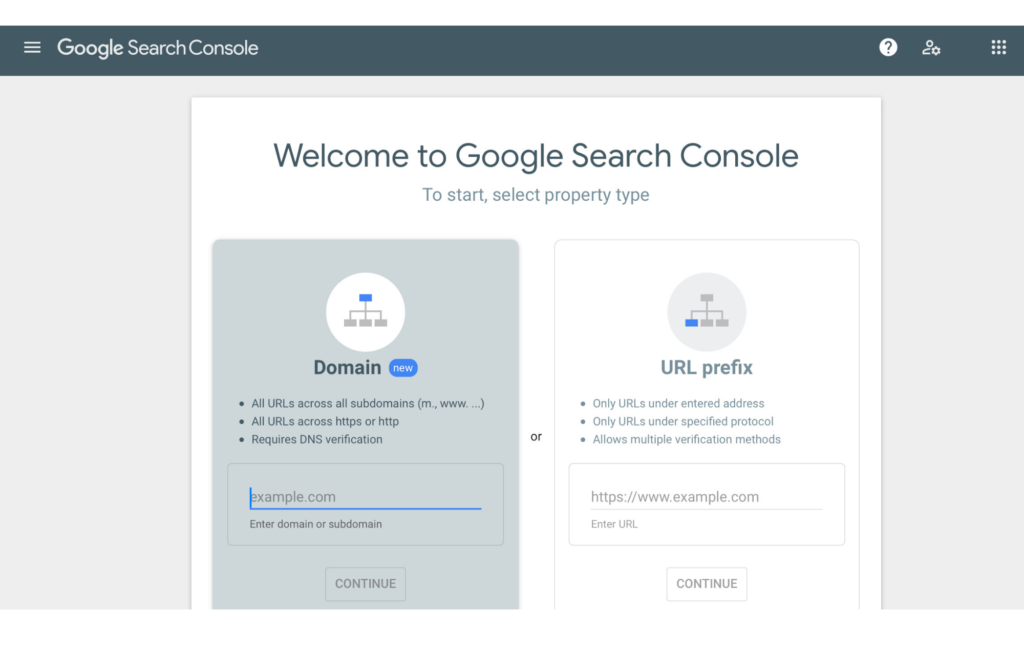
So, you got this idea for a business. You’re so gung ho about it that you start gathering and purchasing everything you need to operate your new venture, including a website domain. You buy a year subscription through a website builder and hook up your newly minted domain. Then, you start plugging away at developing your company’s website. You add a few landing pages, upload a few photos, and set up a contact page where people can reach you.
In a matter of a few hours, you put together a business website that explains who you are, what you do with a list of services or products, and how they can make a purchase or contact you to schedule an appointment.
You step away, grab a bite, and just let the website marinate over The World Wide Web. You’re itching with anticipation. Your adrenaline is on full blast. You can hardly wait for your first customer.
A day goes by. A week goes by. A month goes by. A few more months go by…and no website sales. No website traffic. As you hope and enthusiasm drains out of your body, you sit and wonder why. You hear of these awesome internet success stories and it seems so easy to start an online business, so why can’t you get yours up and running?
The reality is this isn’t uncommon. The bad news is there’s a multitude of reasons why your website is not getting traffic. The good news is they’re all fixable. So, perk up! You got work to do!
11 BIG Mistakes Causing Low Website Traffic
This list certainly isn’t exhaustive but they are often the culprits to no or low website traffic. We recommend starting here. Go down the list and cross check with your website. Make improvements as you see fit.
1. Your Website isn’t Indexed
This is probably the first thing you should examine if you have no website traffic. It can easily be looked over but it’s easy to check and fix. First, check to see if your website is being indexed. You can do this by opening up the search engine (Google, Bing, Yahoo, etc.). In the search bar, type “site:yoursite.com”.If it’s indexed, a bunch of your website pages will come up.If it’s not, a page, with about a paragraph of content, will show up indicating that your website cannot be found.
WHY THIS CAUSES A WEBSITE TRAFFIC PROBLEM: If your site isn’t indexed on a search engine, like Google or Yahoo, it’s not being crawled by that search engine. Considering Google is the most used search engine in the world –leading the market by 86% – make sure it’s indexed there first.
HOW TO FIX IT: The easiest way to get Google to index your website is by logging on to Google Search Console. This page should appear:

Enter your domain and click continue. You’ll then have to go through a verification process, which you’ll just follow the prompts from there.
2. You’re Not Implementing SEO Tactics
We’re mainly talking about keyword or keyphrase optimization here. Optimizing the pages and content on your website helps search engines crawl your website to figure out what you’re all about. The keywords or keyphrases are like signals that alert search engine spiders when they relate to a search query by a user searching the web.
WHY THIS CAUSES A WEBSITE TRAFFIC PROBLEM: With no SEO, you’ll be last picked in the game of search. No SEO will land you near the end of the search result pages instead of near the top.
HOW TO FIX IT: We recommend starting at the base – the skeleton of your website.
Login to your website builder. Optimize all the metadata (page title, heading (H1), description, page url, etc.) on all your landing pages. Find 1-3 keywords or keyphrases that you constantly use over and over again when optimizing your landing pages. Sprinkle these keywords or keyphrases throughout the content of each landing page.
3. You’re Not Optimizing Keywords/Keyphrases Correctly
It’s like you came up from underwater gasping for air, only to be pushed back down again. We know. We get it. Unfortunately, it’s the reality and with incorrect optimization, you could be sending search engines the wrong message or worse, get penalized.
WHY THIS CAUSES A WEBSITE TRAFFIC PROBLEM: With incorrect optimization, search engines could be indexing you wrong, have a hard time understanding what your business does altogether, or you may be penalized with “black hat” SEO practices.
HOW TO FIX IT: First and foremost to prevent being penalized, use your keywords and keyphrases naturally. Also, avoid keyword stuffing. It’s unnatural and your audience sees right through it – so does Google.
Some other notes:
- Make sure all metadata has at least one targeted keyword or keyphrase.
- Try to use your targeted keywords and keyphrases in subheadings too.
- Include your targeted keyword or keyphrase in or very close to the first paragraph and last paragraph of your pages.
- Use synonyms or different versions of your targeted keywords or keyphrases throughout the content.
4. You’re in a Saturated Industry
A saturated industry means you’re up against a whole heck of a lot of competition. With a lot more people to compete with, odds are a lot of these companies are already very well established on the Internet.
WHY THIS CAUSES A WEBSITE TRAFFIC PROBLEM: High volume keywords and keyphrases are highly competitive in a saturated market. Additionally, there’s probably already a vast amount of your competitors that have established websites and earned their spot as a trustworthy site.
HOW TO FIX IT: There are a few ways to work around this like narrowing your niche or paying big money for ads. But shelling out money is hard to swallow and narrowing your niche may disrupt your whole business model – especially not ideal for businesses that are already established but are just trying to ramp up their website.
Instead, aim for low volume keywords or long-tail keywords, which typically are more specific. You’ll still want to target a few of those high volume keywords throughout the foundation of your website but really focus on those low volume keywords when writing your blogs. And make them stellar!
Also, go local if you can! Incorporating a location with your keywords is much more beneficial than generic ones. For example: Dallas moving company vs. moving company.
5. Poor Quality Content
Next to having your website properly optimized, is the quality of your content. Not only is this important to Google, it’s important for your users.
WHY THIS CAUSES A WEBSITE TRAFFIC PROBLEM: If your content isn’t providing any value for your traffic, they’ll leave pronto and not engage with anything else on your website. This affects your bounce rate, which you can view in your Google Analytics. A high bounce rate is not good. It diminishes your trust factor giving you a low ranking.
HOW TO FIX IT: Think about your targeted audience every single time you write content. Put yourself in their shoes. If they land on your page, what are they expecting to read or learn about? If they search a term you are targeting for one of your blogs, what is the intent of their search? When you understand their intent, you can write content that fills their needs, gives them answers to their problems, etc.
A few other tips about writing good quality content:
- Don’t leave any stone unturned. Make sure you answer their question, solve their problem, etc. in its entirety.
- Never direct them away from your site to learn more about the topic unless it’s a law, study, or the like.
- Always end your content with a call to action like purchasing a product, calling you for services, or providing links to other content on your website to learn more.
6. Your Website Doesn’t Display You as an Authority
This relates to having poor quality content. You may have published great content but are you coming off as an expert in your field?
Think of it this way…If someone came to you with a problem, would you send them to someone who is unsure of what they’re doing or semi-knowledgeable in the topic, or to a confident expert?
Likewise, search engines follow an acronym known as E.A.T, which stands for:
- Expertise – Are you covering the topic well in a way that the average personwill understand?
- Authoritative – Why should anyone trust you? What makes you an expert?
- Trustworthy – Is your content original and honest? Is your site secure?
WHY THIS CAUSES A WEBSITE TRAFFIC PROBLEM: If you’re not viewed as an authority, you’re not a trusted site. And we already know what happens to sites that can’t be trusted – down the search engine result pages they go.
HOW TO FIX IT: First, focus on the language you’re using. Your sentences should sound confident. Additionally, make it easy to read – use layman’s terms and a simple layout.
Avoid phrases or words like:
- I think
- Probably
- I suppose
TIP: Keep an eye out for fluffer words and phrases. This can signal an unconfident undertone.
Grammarly,Hemingway App, and even your website builder, like WordPress, has tools that can help you write more confidently and simplify your context.
Second, support your claims by citing research papers, studies, laws, etc. from reliable sources and link to them.
Lastly, make sure what you’re writing about relates to your work. Ask yourself, “what qualifies you to talk about this topic?”
7. Failing to Promote
In this day and age, promoting your website, your content, and your services is an important step for getting traffic to your site. If you think $ when you hear promotion, rest assured you can promote your content without spending a dime.
WHY THIS CAUSES A WEBSITE TRAFFIC PROBLEM: You will fall behind if you don’t put yourself out there. Building a customer base is a two-way street. Some of your customers will find you on their own but you’ll also have to find your customers as well and get them to visit your website. Your competitors are aggressively promoting their businesses to your same audience. They’re constantly planting a seed in their minds about who they are and what they do. If you’re not doing this, you’ll be left in the dust.
HOW TO FIX IT: Here are a few ways to promote your website and content for free:
- Create a business account on social platforms that your target audience is frequently using. Facebook, Youtube, and Instagram are among the top most popular social networks but it doesn’t mean your target audience are on it and using it consistently.
- Garner an email list by having your visitors subscribe to a Newsletter or a free PDF of some sort. Stay active with your subscribers by sending them updates, like a new blog post, new products/services, sales, etc., via email.
- Guest blog on a popular hub, like HubSpot, or reach out to a leader within your industry (not a competitor) and ask to guest post on their site. For example, if you’re a personal trainer, guest post for a popular health food blogger. You could also reach out to local newspapers or magazines to see if you can write something for their publication.
Of course, there is always paid advertising and it certainly does give you a big boost. So, if you have the funds, it’s highly recommended to throw out some dough in this arena.
8. Zero or Lack of Content
If poor quality content hinders website traffic, you can bet having no content at all or lack of content will do the same.
WHY THIS CAUSES A WEBSITE TRAFFIC PROBLEM: This signals to the search engines that you have no value to offer. Additionally, if you’re not consistently publishing new quality content, search engines may think your website is inactive or you went out of business.
HOW TO FIX IT: For starters, make sure your landing pages are thorough. Explain in detail your services, your process, your products, about you, etc. Ensure your website answers the who, what, why and how they can contact you or purchase something.
Furthermore, aim to write a blog every month, if not every week, with a minimum word count around 500 withquality content.
9. Low Quality User Experience
There are two very important factors when it comes to website user experience: site speed and site navigation.
WHY THIS CAUSES A WEBSITE TRAFFIC PROBLEM: Your users will become frustrated and quickly go somewhere else. As you read earlier, this affects your bounce rate signaling to the search engines that your site isn’t liked.
HOW TO FIX IT:
- Fixing site speed:
This is a bit technical and may need technical support; however, there are a few generic problems that can interfere with site speed which include image file size, video formate and length, and overly formatted. Use this free Google page speed tool to test the speed of your website and find underlying issues with site speed.
- Fixing site navigation:
Create a simple navigation menu bar near the top of your website. The design elements, layouts, and formats should be cohesive and appealing to the eye. Avoid clutter and too much white space. Publish content that flows well and provides relevant links that the user can click to learn more. Ideally, you want to be funneling your visitor through the buying cycle. That could mean purchasing a product, booking an appointment, subscribing to your email list, etc.
10. No/Low Mobile Usability
Since 2014, mobile searches are increasing whereas desktop searches are slowly declining.Mobile searches compared to desktop searches are more than two fold.
WHY THIS CAUSES A WEBSITE TRAFFIC PROBLEM: Remember how we told you Google is the #1 search engine in the world…by a long shot? In 2020, it switched tomobile-first indexing. In short, Google searches and ranks mobile sites first before desktop.
HOW TO FIX IT: Luckily, many website builders have website themes that support mobile browsing. Therefore, it’ll automatically create a mobile version for you and you can preview it before you publish it.
However, do you really know if it’s performing well? That’s where you can do a speed test of your site and see how it’s performing and what improvements need to be made. Depending on your provider, you can go in and edit the mobile version individually or you’ll have to get creative with finding a solution that works well on desktop and mobile.
11. No Backlinks
Backlinks are obtained from other sources outside of your own company. The more authoritative they are too, the better. Considering this, getting backlinks is a bit tougher than any other problem we’ve listed. Even so, it’s still fixable!
WHY THIS CAUSES A WEBSITE TRAFFIC PROBLEM: Google is still apprehensive about trusting you as an authoritative resource.
HOW TO FIX IT: It takes time to get true organic backlinks but in the meantime, use these backlink strategies:
- Guest blogging, which can include a snippet about you and a link to your website.
- Commenting on other blogs or giving advice on forums where you can send them to your page or a blog post for more information.
- Ask others in your field to backlink to your website or blog that would be relevant to their users. Prepare a good pitch!
A lot of this is tedious work when you’re running a business. A lot of time goes into producing great quality work that’ll help you reach your website goals. Not to mention, a lot of patience too! You won’t see results overnight.
Additionally, there’s a steep learning curve to really understanding how search works and how digital marketing works as the main ingredient for driving traffic to your website. If you find time is just not on your side, hiring an effective professional marketing company, like us atRisely, will be beneficial.




